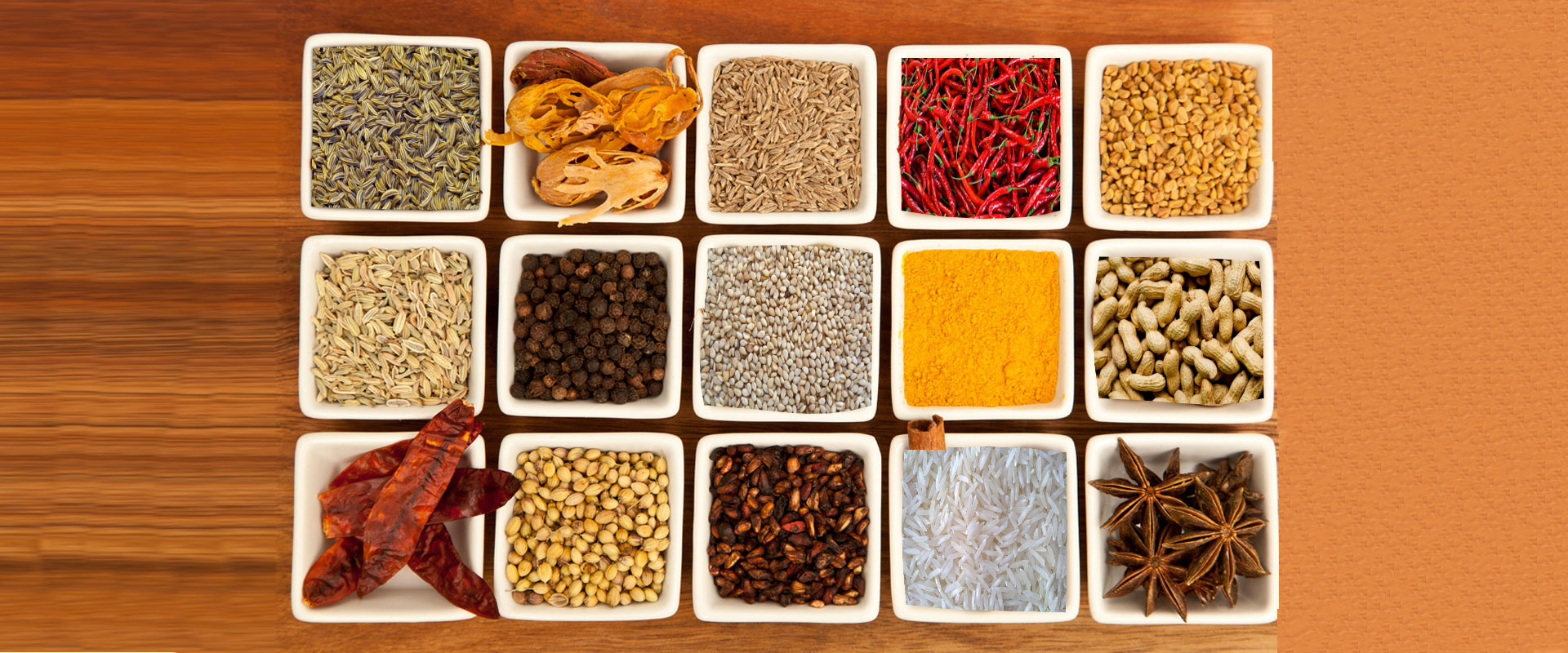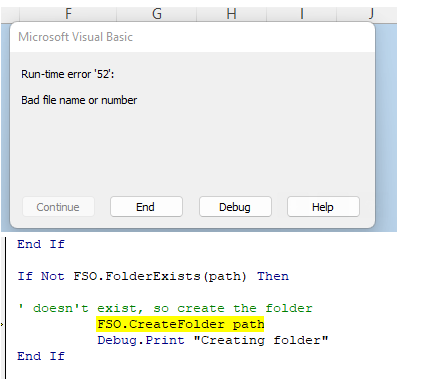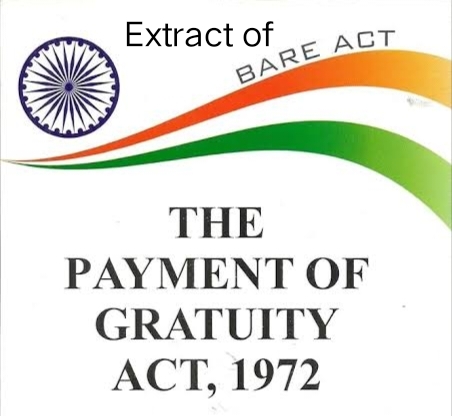PROJECT REPORT FOR SPICE AND DRY FRUIT MANUFACTURING UNIT
April-16, 2023INTRODUCTION TO INDUSTRY
SPICES
Spices play an important role in enhancing the flavour and taste of the processed foods. On account of their ability to impart flavour and aroma, spices have been used in the preparation of a wide variety of processed foods. Spices are required in preparing appetising and digested beverages and confectionary, soup powders, sauces, instant curries, canned meat and poultry products etc. Spices are also used in the medicines because of their carminative stimulating and digestive properties.
Ground spices are extensively used in all types of curried dishes in India and abroad. Although spices are traded chiefly in an unprocessed form, a small yet significant quantity enters international trade as spice powders. Curry powder is the foremost of those blends or mixes and sometimes consists of 20 or more spices designed to add the characteristic flavour of an Indian curry, which is appreciated all over the world. Apart from the overseas market, processed curry powder is becoming popular in the domestic market also. Hence the demand for unadulterated spices and curry powder in attractive packaging is fast emerging.
Demand for processed spices is directly linked with its consumption in food processing industry and this is set to grow in India in coming years with growth of population and fast changing food habits as well as increase in purchasing power of the middle and upper class households in India.
Considering the potential market opportunity of such units, the present detail project report has been developed. The main objective of such initiative is to productively utilize the abundantly available resources of the local area and to enable uninterrupted supply of the products to market throughout the year.
DRY FRUITS
Dry fruits are the fruits that has been dried naturally or artificially using a machine. The major classification of dried fruits are in the form of
- Dehydrated fruits/dried fruits
- Nuts
Dried and fresh fruits are rich sources of vitamins, antioxidants and fibres. The dried fruits market is gaining acceptance due its easy snack to pack features which avoid spoiling of fruits as quickly as fresh fruits. Dried fruits are is mainly used as snack or in breakfast cereals, muesli, bakery products, dairy products and desserts. Nuts and dried fruits are alternative to unhealthy snacking and to consumption of meat.
The dry fruits business has been emerging in the form of online, retail and wholesale spaces because of the increasing health benefits of dry fruits, use in dairy and confectionery, use in the baking industry, use in hospitality industry and massive use as a form of packaged gifts on the occasion of festive, celebrations and auspice.
Moreover, because of large availability of dry fruits through wholesalers and massive Indian distribution channel the dry fruit business is likely to yield a reasonable profit margin with a minimal capital requirement and wide customer target base
PROJECT DESCRIPTION
The proposed project is that of setting up of a Spice Grinding and Packaging unit at E-94, Sector-6, Noida, Gautam Budh Nagar, Uttar Pradesh.
The key products of the proposed project are as follows;
- Turmeric Powder
- Chili Powder
- Pepper Powder
- Jeera Powder
- Dhania Powder
- Whole spices
- Dry fruits
Spices and dry fruits are used all over the country and the unit can go on adding new products once achieves stability in the market.
The proposed project would procure the raw materials from the farm level available locally and buy dry fruits from large importers. After processing, the products would be supplied to the market through distributors/ wholesalers/retailers.
MARKET PROSPECT
SPICES
India is the world's biggest exporter of spices. There is good scope for domestic market for this commodity in processed form. The market for export of spices is encouraged in processed form as it will bring more value addition to the unit price of whole spices. The demand for spice powder is increasing day by day with the changing attitude as well as improvement in purchasing power of the people. The products find good market in urban areas of the country particularly within the state itself.
Market Promotion plays a vital role for the generation of the potential customers therefore, application of marketing strategies are recommended. Marketing plan of the proposed project may include good quality maintenance, promotional campaign like offering special discounts, referrals, advertisement and tying up with buying houses
DRY FRUITS
The Dry Fruit Market in India is showing remarkable growth owing to the growing gift culture during various festivals and occasions along with the rising health awareness among the consumers. Consumers are becoming aware about the health benefits associated with dry fruit consumption and this is leading to its increased consumption. Moreover, the user industries of dry fruits are also growing steadily leading to its increased demand from these sectors. This is further aided with the penetration and availability of dry fruits in different packaging formats at various retail points along with the increased disposable income amongst the consumers. All these factors are indicating towards the bright future of the Indian dry fruit industry in the coming years
An analysis of the drivers explains the factors for growth of the industry that include festivals and gifting culture, increasing health awareness, growth of user industries, booming retail market, rising income and consumption and rapid urbanization. The key challenges include rise in packaging costs, shortage of cold storage units, deficit in power supply and under-invoiced imports.
The next section speaks about the government rules & policies which covers Food Safety and Standards Act 2006 & Regulations 2011 and other government policies.
After this, a separate section of government participation is provided which speaks about Agri Export Zones and state specific initiatives taken by the government of India for boosting the dry fruit industry.
GOVERNMENT INITIATIVES
Setting up Food Processing Units :
Capital Investment Subsidy:
(A) A subsidy amounting to 25 percent of incurred expenditure on plant machinery and technical civil work in respect of setting up, expansion and modernisation/up gradation of the food processing units in the state will be provided, subject to a maximum of Rs. 50 lakh in all the districts of the state. In case the funds from the known sources are available with the entrepreneur, there will be no compulsion for availing loan.
(B) Under the Pradhan Mantri Kisan Sampada Yojana Scheme for (Agro-Marine Processing and development Agro-processing Clusters) of Government of India, an additional capital investment subsidy at the rate of 10% of the cost of plant machinery and technical civil works to the fruits & Vegetables Units for setting up of new unit/expansion and modernisation will be provided.
(C) The Mega Food Park project sanctioned for Uttar Pradesh under the Pradhan Mantri Kisan Sampada Yojana, Government of India with a minimum capital investment of Rs. 50 crore and above, an additional subsidy at the rate of 10 percent of the project cost, will be provided by the State Government. Proviso, the facility provisioned under the Para 7.1.1 (A) shall not be admissible to those proposals, which are covered under Para 7.1.1 (B & C).
Interest Subsidy: (A) Cent-percent of the rate of interest accrued on the loan taken from banks/financial institutions for meeting the expenditure on plant machinery, technical civil work and spare parts for establishing the micro and small food processing industries will be reimbursed for a maximum period 05 years.
(B) Other food processing units setup in the state will be reimbursed the amount of interest accrued on the loan taken for the banks/financial institutions for meeting the expenditure on plant machinery, technical civil works and spare parts, at the rate of 07 percent for a period of 05 years. Its maximum limit will be Rs. 50 lakh per year per unit. Proviso, in the cases of capital subsidy proposed in the Para 7.1.1 and the loan taken from banks/financial institutions as proposed in the Para 7.1.2, the maximum amount including the interest subsidy will not exceed the limit of Rs. 250 lakh in the period of 05 years.
Interest Subsidy for Purchase of Reefer Vehicles & Mobile Pre-Cooling vans For the purchase of reefer vehicle, reimbursement of the amount of interest accrued on the loan taken from banks/financial institutions will be done at the rate of 07 percent or the actual interest rate, whichever is less, for a period of 05 years. Its maximum limit will be Rs. 50 lakh.
Creating Infrastructure for conducting Degree/Diploma /Certificate Courses in Food Processing: Grant-in-Aid up to a maximum limit of Rs. 75 lakh may be provided towards the expenditure incurred on infrastructural facilities such as modern library, pilot plant, and laboratory equipment to the Universities/Government Institutions for conducting degree/diploma/certificate courses in Food Processing technology.
Skill Development in Food Processing:
Entrepreneurship development programmes will be organised in the institutes, research & development institutes of the Central and State Governments for training of entrepreneurs/participants for the establishment of industries. Practical training to the selected entrepreneurs for setting up of the food processing units will be imparted at premier institutions of the country at actual training costs.
Technology transfer will be done by organising three day food processing training/camp in the Nyaya Panchayats of the state.
After training in Nyaya Panchayats, the participants desirous of further training will be selected for a month long district level training at Government Food Processing Training Centres. Setting up of the small food processing units in the rural areas will be promoted through new scheme. For this purpose, subsidy at the rate of 50 percent of the unit cost, subject to a maximum limit Rs. 01 lakh per unit will be provided.
The Government Food Science Training Centres will be strengthened and developed as Centres of Excellence of Food Processing. These centres will be run on PPP model, if needed. conferences etc
Promotion of Standardisation:
For the purpose of standardization of products as per internationally accepted quality norms, environmental certification and accreditation such as ISO:14001, ISO:2200, HACCP, Phytosanitary certification etc., the state government will provide 50 percent as fee reimbursement subject to a maximum of Rs. 1.50 lakh.
QUALITY CONTROL AND STANDARDS
Following specifications under Bureau of Indian Standard related to processing of such products may be referred:
Turmeric Powder: IS: 2446-1980
Chili Powder: IS: 2445-1984
Pepper Powder: IS: 1778-1982
Cumin Seeds Powder: IS: 2447-2010
Coriander Powder: IS: 2444- 1980
Dry Fruits- IS 5781:1993/ISO 1026:1982
FSSAI LICENSE: FSSAI License is issued by the Food Safety and Standards Authority of India (FSSAI), Ministry of Family Health & Welfare, Government of India. Application to commence a food business must be made to the FSSAI in the prescribed format. Based on the application and supporting documents, FSSAI will accord approval. The Food Safety and Standards (Licensing and Registration of Food Businesses) Regulations 2011introduced to improve the hygiene and quality of food has brought about tremendous changes in the food industry. As per the Act, no person shall commence or carry on any food business except under a FSSAI license or FSSAI registration. Therefore, any food manufacturing or processing or packaging or distributing entity is now required to obtain a FSSAI License or Registration.
POLLTUION CONTROL: There is no major pollution problem associated with this project in terms of air and sound pollution. However, entrepreneur should obtain NOC from concerned State Pollution Control Board.
EFFLUENT DISPOSAL: In our opinion no major effluent generated during the process.
ENERGY CONSERVATION: Adequate care should be taken in electrical installations and optimal utilization of machinery.
ABOUT MANAGEMENT
The Management of the company shall be looked after by the proprietor of the firm i.e. Mr Sushil Kumar. Further the company shall hire Production Managers who has vast experience of 5 years working in the Spice and Dry Fruits manufacturing sector. Brief profile of the management is herein given below.
Name : Mr Sushil Kumar
Qualification: Intermediate (PCM) from BIEC (Bihar Board) in 2003.
Age : 39 years
Address : C/o Ranipur, Ramgarh,
Ghazipur, Uttar Pradesh-231225
Experience: 10 years of Rich Experience of establishing new units and smoothly running the retail store owned by his mother in Ghazipur.
Expected Role Mr Sushil Kumar will head the Sales and Customer Service Department, wherein his main focus will be on customer acquisition for the firm and satisfaction and realization from customers.
PRODUCTS AND MANUFACTURING PROCESS
The product range of the company will range from 30 to 45 products with a sole objective to bring specialization, high quality and economies of scale for the said products. This way with better prices and quality it will be whole lot easier to penetrate the market in the area more quickly.
PROCESS FLOW CHART FOR SPICE & DRY FRUIT PACKAGING
- Raw material purchase
- Shifting & Sorting
- Pouch Filling
- Primary Packing
- Secondary Packaging
- Dispatch
CONSUMABLES AND POWER CONSUMPTION
The major consumables required are as follows;
- Turmeric, Chili, Pepper, Jeera and Dhania.
- Dry Fruits
- Packaging Materials including secondary packaging.
POWER:
The total requirement of power for the project is 22.20 KW. The total power supply would be distributed in the following way;
Plant & Machinery – 20.20 KW
General Lighting - 2.00 KW
INSTALLED CAPACITY
In assessing the proposed plant capacity, due consideration has been given to technological and financial factors, marketing considerations, availability of consumables, infrastructure facilities and economic viability. The detailed requirement of the plant and machineries to achieve the plant capacity is assessed by the unit technician. While arriving at the requirement of various type of equipment and machinery required for the unit, due considerations has been given to the following points.
a) Minimum Wastage
b) High Productivity
c) Maximum flexibility in operation
d) Adequate stock by provision wherever necessary
The installed production capacity of the unit would be 7200 pcs per day.
For the purpose of carrying out this economic viability of the proposed project, it is assumed that the plant will operate at following efficiencies during the first 5(Five) years.
|
Year |
1 |
2 |
3 |
4 |
5 |
|
Capacity Utilization |
50% |
60% |
70% |
80% |
80% |
PROJECT COST ESTIMATES AND MEANS OF FINANCE
TOTAL PROJECT COST:
The Capital cost of the project has been estimated on the basis of installed capacity assuming 200 working days per annum. The total cost of the Project including margin for working capital has been estimated at Rs. 22,09,000.00
LAND, BUILDING AND CIVIL WORKS:
The land and building are owned by the proprietor, so there is no need of major civil works. It is situated at E-94, Sector-6, Noida, Gautam Budh Nagar, Uttar Pradesh-201301.
PLANT & MACHINERY:
The total cost of Plant & Machinery has been estimated at Rs.7,22,000.00as detailed are as Follows: -
|
S. No |
Particulars |
Nos |
Amount (in Rs) |
|
1. |
FF Automatic Pouch Packing Machine |
02 |
Rs.2,50,000.00 |
|
2. |
FF New Matrix Pouch Packing Machine |
01 |
Rs.1,75,000.00 |
|
3. |
Dot Matrix Label Printing Machine |
01 |
Rs.90,000.00 |
|
4. |
Heat Seal Machine |
02 |
Rs.24,000.00 |
|
5. |
Nitrogen Compressor Machine |
01 |
Rs.75,000.00 |
|
6. |
Printing Cylinders |
08 |
Rs.1,08,000.00 |
|
|
TOTAL |
|
Rs.722,000.00 |
PLANT EXPENDITURE:
The total cost on Plant expenditure includes admissible taxes, transportation, insurance of the machineries and installation etc. has been included.
FIXED ASSET:
The cost of Misc. Fixed Assets has been estimated at around Rs. 2, 09,000.00. These include cost of furniture and fixtures and office equipment.
PRELIMINARY&PRE-OPERATIVE EXPENDITURE:
An expenditure of Rs. 2, 11,000.00 has been earmarked on this account.







Twitter
Pinterest
Linkedin
Whatsapp